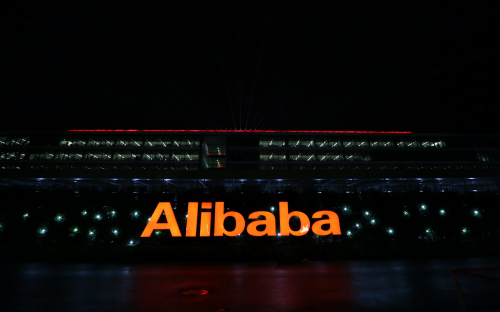The China-based company has launched its first talent-recruitment program offering on-the-job training to MBA students from top businesses schools. US rival Amazon has developed a similar scheme. Amazon is now the top-three recruiter at a number of leading business schools.
The Alibaba Global Leadership Development Program (AGLD) will give MBAs the chance to rotate through core Alibaba business units in six to eight-month stints, in areas such as e-commerce operations, cross-border logistics, and business development.
“Its launch marks a big step to start developing a pipeline of leadership talent that the company can benefit from globally,” said Annie Xu, general manager of Alibaba US.
Each participant will be mentored by a senior member of Alibaba’s leadership team.
Alibaba is accepting applications from MBA students in their second year of studies for a full-time leadership program as well as an internship scheme.
But candidates must be proficient in both Mandarin Chinese and English, with at least two years of work experience.
Annie said: “We are looking for people who have a strong sense of entrepreneurship, leadership and integrity. They need to be positive, creative, resourceful and at the same time resilient in the face of uncertainty, changing dynamics and constant challenges, given the fast-pace and innovative nature of Alibaba as a company.”
Tech companies and e-commerce groups in particular are now among the top recruiters at a number of leading business schools in Europe and the US, displacing the likes of banks HSBC and JPMorgan and consultancy firms such as Accenture and McKinsey & Company.
“Recruitment demand is strong in the e-commerce sphere,” said Conrad Chua, head of MBA careers at Cambridge Judge Business School. “In a reflection of the changes that technology is bringing to retail, the jobs for MBAs are now in areas such as logistics, customer insights, and working on partnerships with third party sellers,” he said.
Amazon was the third-largest recruiter at London Business School last year, ahead of Deloitte. At INSEAD, a global business school, Amazon hired 36 MBA students last year, more than Google and nearly on a par with Bain & Company.
“E-commerce companies often look for people who are highly analytical, commercially savvy and who are able to make strategic decisions from large volumes of data — attributes common to many MBAs,” said Deb Findlay, a recruitment lead at Oxford University’s Saïd Business School. Amazon was Oxford’s top recruiter of MBAs last year.
At HEC Paris, Amazon has been the most significant recruiter from its MBA program since 2011.
“We are seeing an upswing in demand for MBAs from the retail sector,” said Paula Quinton-jones, director of career services at Hult International Business School.
MBAs are increasingly looking for roles with wide areas of impact, particularly on bottom line results, she said. “This is driving the popularity of online retailers like Amazon,” she added. “They are household brands so students feel proud to work for them and the impact they can have is immediate.”
Online retailers’ reach extends beyond Europe. At the Ross School of Business in the US Amazon doubled the number of MBAs it recruited last year, snapping up a record 27.
At the Haas School of Business in California Amazon is a top recruiter among a tech-centric MBA class.
Georgetown McDonough in Washington has seen strong demand for MBA hiring from Amazon, said Angela Williams, associate director of the MBA Career Center, with numerous full-time jobs and internships in marketing, finance, operations and product management, for US markets and in China and Japan.
She added that there is also “demand for MBA hiring at Amazon’s competitors”.
Like Alibaba, Amazon has a specific leadership program for MBAs. Developing a leadership pipeline is a focus for many big tech companies, which are looking to business schools to groom the next generation.
Dr Claire Collins, associate professor of leadership development at Henley Business School, said: “Leadership is often mentioned as one of the key skills they [recruiters] are looking for from candidates with an MBA on their CV.”
Whether MBAs can display leadership experience however is less important to employers. “You see leadership as a future potential, when they [MBAs] have relatively large teams under their charge, not so much immediately,” said Professor Carlos Losada at ESADE Business School’s department of strategy and general management.
Alibaba’s hunt for MBA hires with fluent Mandarin Chinese is becoming typical of large Asian businesses.
Roy Chason, assistant director at China Europe International Business School in Shanghai, said: “Language and local knowledge is an obvious must when doing business in China.”
He added that Chinese companies will often want Europeans with knowledge of the China market to act as their bridge with Europe as they globalize.
Chua Nan Sze Marie Antonie, director of graduate studies at NUS Business School in Singapore, said that many of NUS’ students are interested in learning Mandarin.
She added that language skills may be of value to companies seeking leaders who would be able to lead in, and from, Asia.
Visit http://campus.alibaba.com/mba or email mbarecruit@alibaba-inc.com
RECAPTHA :
42
5b
54
c8








